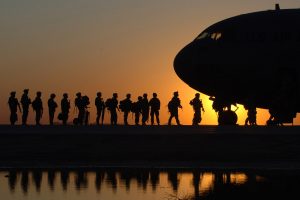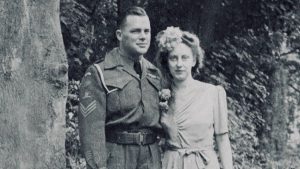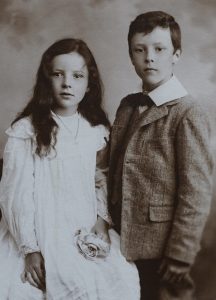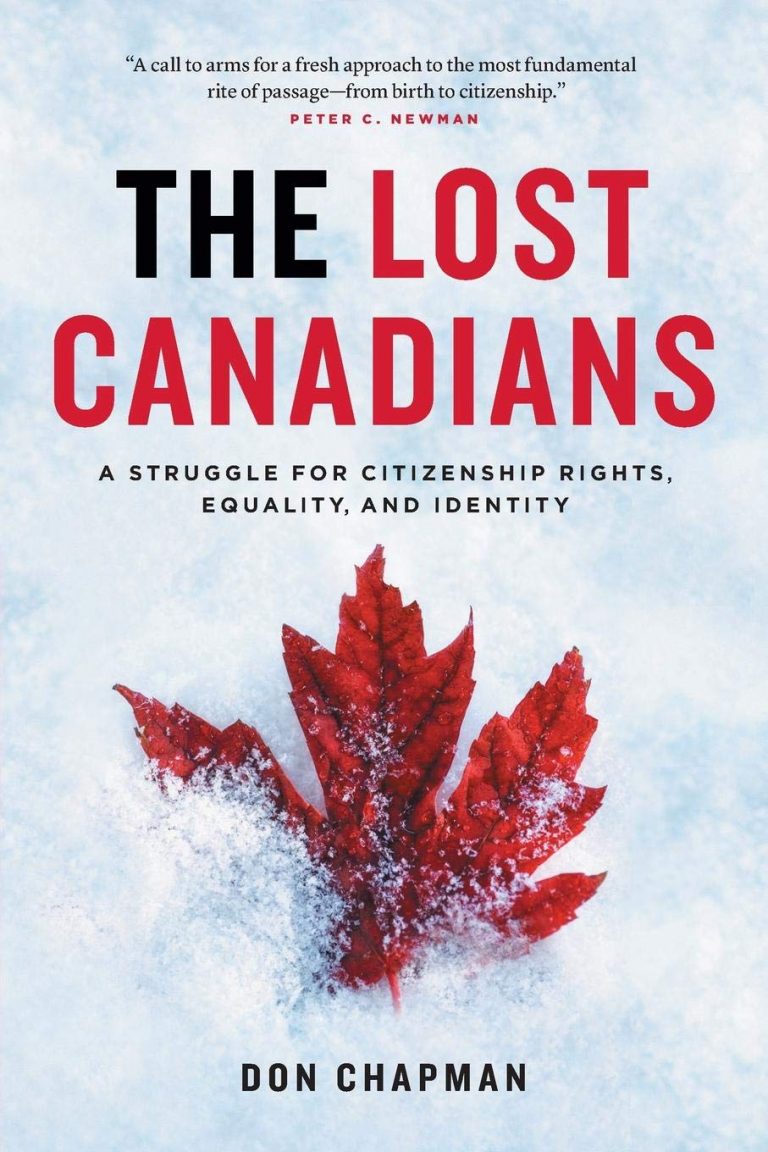Of all the issues faced by Lost Canadians, one of the most emotionally charged were those faced by the so-called ‘War Babies’, defined as children of Canadian soldiers who later were stripped of their Canadian citizenship.
War babies were literally those children born in a time of conflict, most of them to Canadian fathers and foreign mothers, and the vast majority of whom were born during or shortly after the Second World War. However, some were born to female soldiers as well.
The way these Canadians were treated was both arbitrary and cruel. Some of the War Babies came to Canada and lived here their entire lives without incident, and without ever crossing the path of immigration officials. Others had their lives ruined, separated from their family and their own country for years or in some cases decades.
In 2007 the demographic expert Barry Edmonston analyzed data from the 2001 Canadian census to find out how many of the war babies still live in Canada. The census indicated there were between 6,000 and 20,000 people in that category who are living in Canada. Immigration data indicates the number of affected people is likely much higher, but some experts say many war babies may have returned to Europe.
One of them was Joe Taylor, a BC resident who was stunned to discover he was not Canadian when he opted to return to Canada.
THE JOE TAYLOR CASE
Taylor’s case is typical. He says his father suffered the trauma of seeing several good friends killed during the D-Day invasion and in subsequent battles across Europe. He suffered mental problems, and Taylor’s parents soon divorced. He and his mother returned to England, but as an adult, Taylor decided to return to Canada, his original home.
To his shock, Taylor says, he was told he is not a Canadian, for three reasons: he was born abroad, his parents were not married at the time he was born, and he was not living in Canada at the time he was 24 years old. Taylor took it as an insult, not just against him, but also against all Second World War veterans.
“I thought it was merely a formality. I didn’t realize there were mean-minded bureaucrats in CIC that would fight tooth and nail to strip citizenship from the dependents of Canada’s brave soldiers.”
Taylor sued the government in Federal Court and won his case. Justice Luc Martineau ruled the automatic loss provisions of the 1947 Citizenship Act are unconstitutional, and ordered that Taylor and all other people affected by the law have their citizenship reaffirmed.
But Taylor’s battle was far from over. Citizenship and Immigration Minister Diane Finley decided to appeal, and years later the federal government won a pointless victory, as the Court of Appeal ruled in the government’s favour.
Taylor was preparing to take his case to the Supreme Court of Canada, but Finley agreed to grant him citizenship. Shortly thereafter, lobbying by the Lost Canadians and pressure from the media caused the government to throw in the towel, and rewrite the 1977 Citizenship Act.
Taylor was far from being the only Canadian affected, as Edmonston’s data showed.
The most famous war baby in Canada is former Canadian General and now Senator Roméo Dallaire. Born in Holland to a war bride mother, Dallaire discovered while serving as a captain in the Canadian army that he wasn’t a citizen. At an Oct. 4, 2006, news conference, Dallaire described the actions of CIC as being “absolutely inhumane,” and went on to say, “It is absolutely nonsensical, and that is why, you know, there is a term called bureaucratic terrorists. That’s the gang in the middle of the system that fights the system — that have this power trip of authority and interpret things — not in the benefit of the citizen but in the benefit of the government. And that is not their duty. Their duty is to make sure that the government is compliant with the laws in order to help the citizens — not the other way around.”
Like their war bride mothers, the war babies always assumed they had Canadian citizenship, and the documents of the time would seem to confirm that. The federal cabinet issued orders-in-council saying that any child of a Canadian soldier who came to live in Canada automatically became a Canadian citizen.
But in 1947, Canada’s first citizenship act was passed, and Citizenship and Immigration Canada takes the view that the act takes precedence over the earlier order-in-council. In short, Canada retroactively stripped citizenship from thousands of people, without a hearing, and without them committing any offense.
While the government did give Taylor his citizenship eventually, their actions in fighting the lawsuit caused many others to live through the nightmare of citizenship denial for many years.
THE SHEILA WALSHE CASE
One woman I interviewed in 2007 during my time at CBC’s Investigative Unit was Sheila Walshe of Kelowna, B.C., who had already been fighting for her citizenship for 16 years.
A registered nurse with transferable and valuable skills, Walshe was not even allowed to work in Canada. When she learned her citizenship was delayed by the appeal, she literally wept in the CIC office.
“Do you think CIC will award me my citizenship posthumously?” the then- 63-year-old nurse asked the Standing Committee on Citizenship and Immigration. “Will they let me be buried a Canadian, if they won’t let me live as one? I’m serious, because it is that important to me … it’s my total identity.”
THE JACKIE SCOTT CASE
Another woman who suffered a very similar fate was Jackie Scott, who was born in January, 1945, mere months before the end of the war. Her father was a Canadian soldier who later married her English mother, but Scott was born out of wedlock before the couple could get married.
Her parents married in 1948 and were together all of their lives, but Scott was labelled ‘illegitimate’ in 1972, stripped of her citizenship, and banished to the United States. The federal government even denied her repeated requests for citizenship, saying she had no “substantial ties to Canada.”
Like most of the other War Babies, Scott’s citizenship was restored after Lost Canadian leader Don Chapman successfully lobbied the government to amend the Citizenship Act.
THE PETER BRAMAH CASE
But not all of the War Babies were as fortunate. One man, a former naval and police officer from Calgary, was left out of the 2009 amendment to the Act.
Brammah was born at the end of the war and had temporarily returned to England before 1947, the year Canada’s Citizenship Act came into force, and so, nonsensically, people like him were left out of the sweeping allocations of citizenship that others enjoyed after 2009 when Bill C-37 came into effect.
In Bramah’s case, he had spent almost his entire life in Canada and served his country in the military, and was still excluded.
That attitude enraged Chapman, who assisted Brammah in his lawsuit and his appeal for a grant of citizenship.
“Should Peter go to his grave after serving and being honourably discharged from the military and be told ‘You’re not Canadian?”‘ said Don Chapman, who has long advocated for improved and more equitable citizenship laws.
By the time Brammah went to court, Chapman said he had already attended the funerals of four war veterans who died without reacquiring their citizenship, something he described as “Canada’s shame.”







